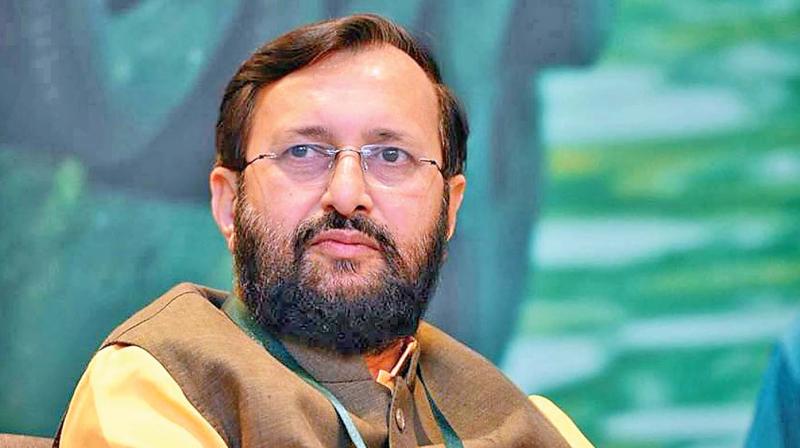DMK opposes new education policy draft
Submits memorandum to HRD minister.

CHENNAI: DMK on Thursday submitted a memorandum to Union Human Resources Minister Prakash Javdekar opposing the new education policy draft, alleging that the policy introduces hereditary occupation system, imposes Sanskrit and interferes with the right of states. The petition of the Leader of Opposition, M.K. Stalin submitted through Rajya Sabha MP, R.S. Bharathi, said the policy is aimed at commercialising education, besides dividing and discriminating among students as privileged and under-privileged and affecting the reservation policy.
Citing the amendments of the BJP government in the Child Labour (Prohibition and Regulation) Act, 1986 permitting children below 14 years to pursue their hereditary family occupations, the DMK said, “So far, Indian family occupations are mostly decided by their castes. This is against the basics of the Right to Education Act, 2009, wherein elementary education is made compulsory”.
The draft policy says “If students fail twice after fifth standard, they will not be permitted to pursue their studies further and they should undergo occupational training,” the party noted. Citing the policy draft which states that facilities for teaching Sanskrit at the school and university stages would be offered, the petition said DMK disagreed with the special importance and priority given to Sanskrit.
“The Draft Policy introduces discrimination among students. It contemplates two types of examinations in tenth standard, A and B, where A is meant for students going for higher studies and B for students for Occupational training. Therefore there is a danger of very large number of students, especially students of SC, ST, and OBCs, forbidden from pursuing higher studies,” DMK said. The policy also envisages opening up of education to the multi-national capital and establishing an Independent Regulatory Authority by which UGC, AICTE, NCTE, MCI, etc., will be rendered toothless, the petition said and added that such steps would make higher education beyond the reach of middle and poor sections of students.

